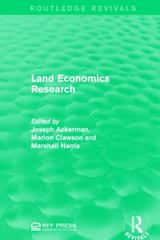Question
1. This question is based on the article, Lean on me, published by The Economist in its March 31, 2016 print edition (https://www.economist.com/finance-and-economics/2016/03/31/lean-on-me). In answering
1. This question is based on the article, "Lean on me," published by The Economist in its March 31, 2016 print edition (https://www.economist.com/finance-and-economics/2016/03/31/lean-on-me). In answering the following questions, note that when a country grows slowly, its demand for investment is relatively low. Also, keep in mind that all countries in the Eurozone use the same currency (the euro) and trade freely among themselves.
(a)According to the article, on the eve of the global financial crisis, Germany and some other rich northern European countries were running large surpluses in their trade with peripheral European countries. Based on the discussions in the article, what is the key underlying cause of these trade imbalances? [11]
Answer:
(b)Some politicians have claimed that when a country runs large trade surpluses, it must be practicing protectionism (trade restrictions) and currency manipulation (depreciating the value of the domestic currency). To what extent these types of policies could have contributed to trade imbalances in Europe? [6]
Answer:
(c)The fundamental macroeconomic identity implies that the sum of private, public, and foreign savings always equals aggregate investment (this is known as the savings-investment identity; for more detail, see Module 2 Background Notes, pp. 7-10). Before the global financial crisis, peripheral European countries were receiving significant amounts of foreign savings from Northern European countries.
According to the article, how did (1) investment, (2) private savings, and (3) public savings, in peripheral countries respond to those transfers? Was this consistent with the savings-investment identity, and why or why not? [12]
Answer:
(d)Extra Points Question: The article points out that in the past, the Eurozone had been too dependent on net exports for economic growth. What policy changes does the article recommend for perking up economic growth in the zone? Since growth through exports does not seem feasible, how should such policies affect other GDP components (investment and public and private consumption) to help raise growth? Does the article recommend that European governments increase or decrease their savings? [10]
Answer:
Step by Step Solution
There are 3 Steps involved in it
Step: 1

Get Instant Access to Expert-Tailored Solutions
See step-by-step solutions with expert insights and AI powered tools for academic success
Step: 2

Step: 3

Ace Your Homework with AI
Get the answers you need in no time with our AI-driven, step-by-step assistance
Get Started


